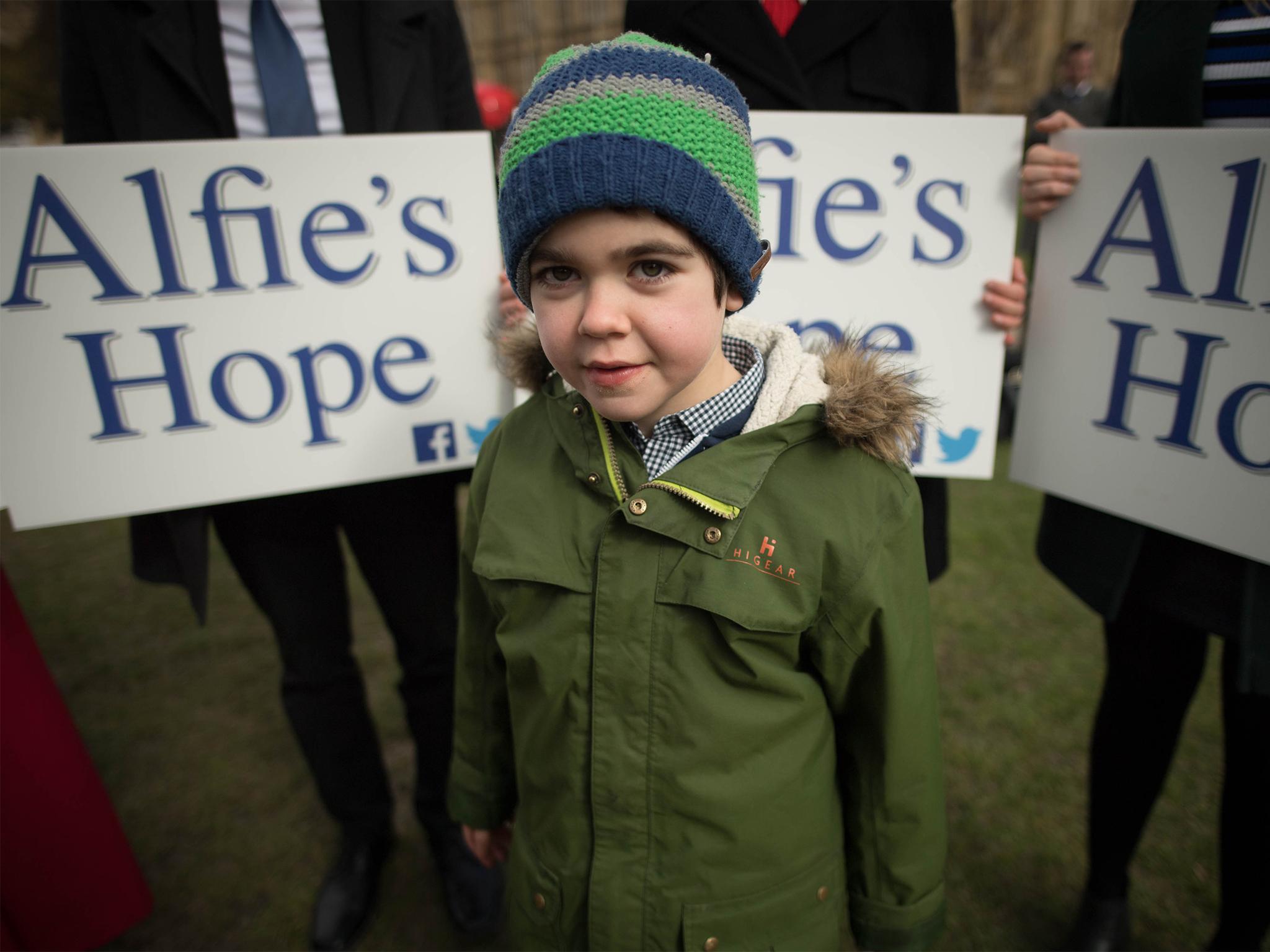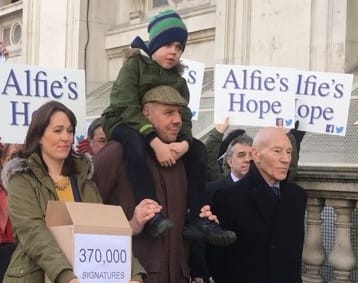Medicinal cannabis. Lawful, but still difficult to obtain in the UK
At the end of last year, the rules for using medicinal cannabis in United Kingdom were relaxed substantially, but many patients are still looking for ways to obtain medicinal cannabis or derived products in a lawful, affordable and responsible way. Healthcare professionals are extremely cautious with prescriptions, because of the attached ‘clear published evidence of benefit’ condition. According to Hannah Deacon, mother of epilepsy patient Alfie Dingley, time is of the essence. “There is much more awareness in the UK and important steps have been taken, but the procedures are too bureaucratic and time consuming. Patients can’t wait for those.”
In 2018, the UK government took significant steps in terms of the use of medicinal cannabis. Since the 1st of November 2018, medical specialists have been permitted to prescribe medicinal cannabis in specific situations. For a while, it seemed like the icing on the cake for a large group of patients and supporters in the UK who worked tirelessly to put medicinal cannabis on the political agenda and for the rules to be amended. Young patients Alfie Dingley (7) and Billy Caldwell (13) became the figureheads. Both boys suffer from a serious type of epilepsy, but it had become evident that medicinal cannabis could make an enormous difference to them. After Charlotte Caldwell, mother of Billy, was arrested at Heathrow Airport in June 2018 after purchasing medicinal cannabis oil in Canada, they were given an emergency license so Billy could continue taking his oil. Hannah Deacon, Alfie’s mother, also made the news on a regular basis. She started a campaign, personally met PM Theresa May and asked her to change the rules and allow a license to be issued to Alfie to use the oil he had used so succesfully in Holland. Among other things, they also managed to win actor Patrick Stewart for Alfie’s case. Alfie’s doctors recieved the first medicical cannabis license which was issued on 19th of June 2018 and then they could import and use medicinal cannabis from Holland. Hannah was the first person in the UK to bring in THC oil legally through customs in July 2018.

‘Sensible’ approach
In addition, in June 2018, Home Secretary Sajid Javid announced that the use of medicinal cannabis would be reviewed. He made it clear from the start that this review would not lead to a full legalisation of cannabis, ensuring a clear distinction between recreational use and medicinal applications. The outcome was a strict set of rules that became effective as of the 1st of November. Medicinal cannabis was also moved to a category of drugs (Schedule 2) that is still controlled, but that may be prescribed in certain situations. For example, only specialists in a hospital may issue prescriptions for a limited number of disorders. This concerns children with rare and serious types of epilepsy, adults who are undergoing chemotherapy and adult MS patients.
Furthermore, treatment with medicinal cannabis may only start when all the other options have been exhausted, whilst the NHS argues that the treatment method needs to be proven to be effective too. Dr Michael Bloomfield, a leading research fellow in psychiatry at University College London was able to accept this ‘sensible’ approach as, like many other healthcare professionals, he is waiting for scientific evidence. “When we don’t have very strong evidence for any medicine, then it should be hard to prescribe something because we should be prescribing medicines when there’s a very strong evidence base for them”, he told BBC News.
New phenomenon
Hannah Deacon understands that perfectly well, but also sees the practical issues for the nearly 25,000 young patients in the UK with refractory epilepsy who, like Alfie and Billy, could benefit from medicinal cannabis. “We are of course extremely grateful that the responsible bodies acted and that we received permission to import the oil for Alfie. We also understand that healthcare professionals have responsibilities and want scientific evidence, but in practice the new rules mean that many patients still don’t have access to medicinal cannabis. Medicinal cannabis is a new phenomenon for doctors and everyone is waiting for the outcome of clinical trials. Patients simply don’t have that amount of time to spare. More to the point, the rules are limited and complicated and manu clinicians do not understand them. Or they do not understand medicinal cannabis and how to prescribe it.”
Availability
Yet it cannot be denied that the UK is taking steps in line with other countries in Europe. Up to the 1st of November 2018, Billy, Alfie and many other English patients did not have access to medicinal cannabis at all without a special license. Nearly all medicinal products based on cannabis were Schedule One drugs, that were assigned no medicinal or therapeutic value and the use of which was prohibited. MS patients were allowed to use Sativex®, whilst Nabilone® was given to cancer patients. However, the use of these registered products was subject to conditions. Availability was a general problem for patients for whom regular treatment methods no longer worked, as was the case with Alfie Dingley. So in September 2017, Hannah and Alfie crossed the Channel to the Netherlands to find out whether medicinal cannabis provided relief; in the Netherlands medicinal cannabis has been available on prescription since 2001. Time was of the essence for Alfie.

Responsible product
Alfie suffers from PCDH19 epilepsy, which is caused by a mutation in the PCDH19 gene that disturbs the production of the protein protocadherin and disrupts the communication between brain cells. This is a serious form of epilepsy that produced clusters of seizures in Alfie; sometimes as many as 30 seizures a day or 150 per cluster. “Initially, the cluster attacks occurred every eight months, but when Alfie was five years old he was in hospital every week”, remembered Ms Deacon. “In the meantime we tried all sorts of different medication, but nothing worked. The situation became more serious as Alfie grew older, so something had to be done.”
Hannah and her husband Drew Dingley explored the possibilities of medicinal cannabis. “There is a lot of anecdotal evidence. In consultation with our GP we went to the Hague, where a specialist was prepared to treat Alfie and where the Transvaal Apotheek produced oil from medicinal cannabis in a responsible manner”, said Ms Deacon who is familiar with stories about illegal and often contaminated cannabis products. “When it comes to health, a little scepticism is a good thing. We were convinced that we needed to look for a legal, standardised and pharmaceutically responsible product. In the Netherlands that is available on prescription.”
After five weeks of treatment in the Netherlands, Alfie started to respond positively to an oil with a low THC content. After adding another oil (with more THC), Alfie’s situation improved enormously. Ms Deacon said: “After five months we were fairly certain that we had found good medication for Alfie. We returned to the UK and started the campaign that enabled Alfie to be given the license after a fair number of setbacks and other patients taking action. In the end, that license led to a prescription from the National Health Service (NHS), ensuring that Alfie can have lawful access to medicinal cannabis. The only problem is that we need to travel to the Netherlands on a regular basis, because the oil used by Alfie is not yet available in the UK.”
Savior
“All things concerned, Alfie is doing well”, continued Hannah Deacon. “The number of attacks has been reduced to just a handful. When they come, they are also far easier to deal with and Alfie recovers far quicker. He goes to school, rides a bike, rides a horse and is developing like any other child. Previous medication worked less well and made him aggressive too. We can truly say that medicinal cannabis has been a savior for us all. Alfie and the people around him have their life back.”
Unfortunately, this is still not true for all patients in the UK. It is with good reason that Hannah Deacon is concerned. “We did not campaign for Alfie alone. There are so many other patients – with different disorders – who could benefit from medicinal cannabis. Now the government has given consent, the availability of medicinal cannabis should be improved rapidly.”
First batch of medicinal cannabis arrived in the UK
On Thursday the 14th of February, the first bulk batch (800 gram) of medicinal cannabis from the Netherlands reached the UK. The English company Grow Biotech had been given permission to import the batch. This is not cannabis oil, but standardised medicinal cannabis of pharmaceutical quality that is produced under the responsibility of the Dutch government. That first batch of cannabis appears to have opened up a new, official route and possibly puts an end to a system where import is permitted for a select number of patients who then need to organise the import process themselves. The risk is that the import procedure takes longer than the validity of a prescription (28 days), making the bulk import essential according to many of those concerned.
The cost of medicinal cannabis is another threshold for many patients. Some patients spend approximately 700 GBP per month and there is still no set procedure for reimbursement. At the end of 2019, the National Institute for Health and Care Excellence is due to publish guidelines for medicinal cannabis. The NHS will use those as the basis for possible reimbursement.
Subscribe to our newsletter
Stay informed with our latest updates by subscribing to our newsletter for exclusive news and compelling content. Rest assured, we prioritize the integrity of your inbox, delivering quality over quantity, with newsletters dispatched judiciously.






